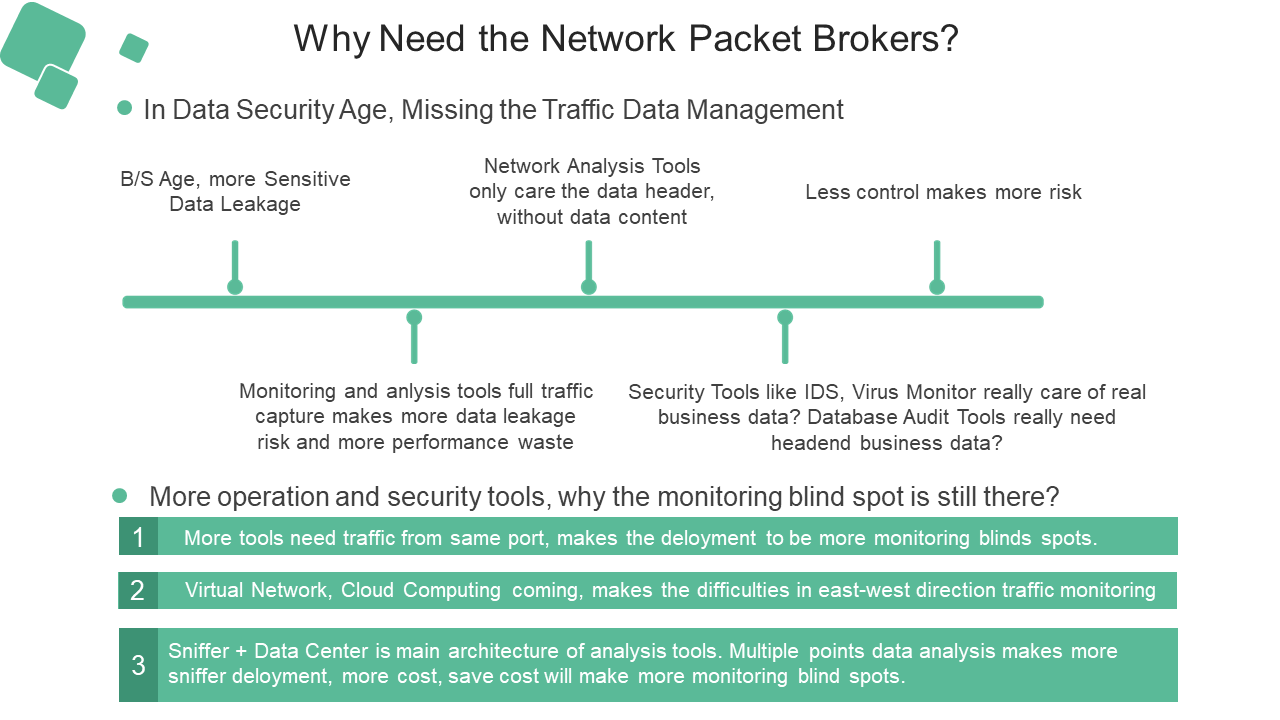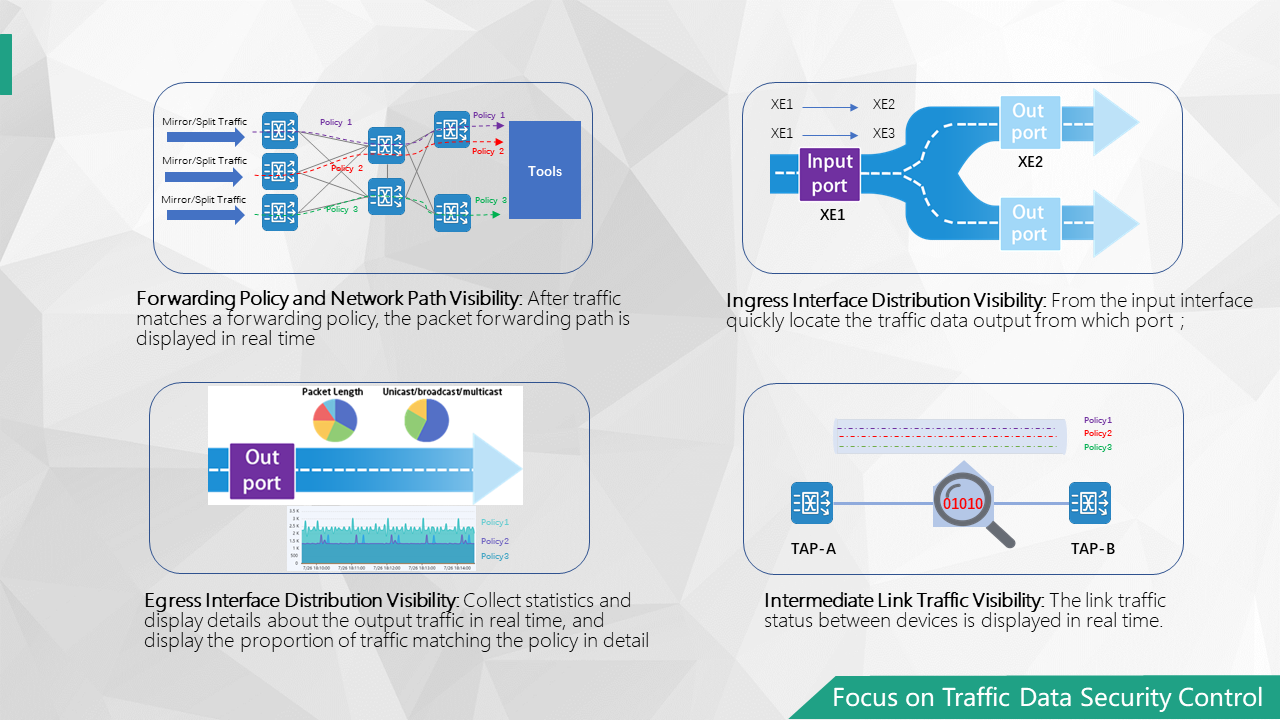Why? Mylinking™ Network Packet Broker?
--- Streamlining Your Network Traffic for Optimal Performance Aways.
In today's digital age, the importance of seamless connectivity and high-performing networks cannot be overstated. Whether it's for businesses, educational institutions, or individuals, a slow or congested network can lead to frustration, decreased productivity, and missed opportunities. To ensure optimal network performance, network administrators deploy various tools and technologies, with one essential component being a network packet broker (NPB). In this blog post, we will explore the functionalities and benefits of network packet brokers in managing network traffic and maximizing its efficiency.

Understanding Mylinking™ Network Packet Brokers:
Mylinking™ Matrix #NPB, or #NetworkPacketBroker, is a network device designed to optimize and distribute network traffic for the purpose of analysis, monitoring, and security in Out-of-band. It acts as a centralized traffic aggregation point within a network infrastructure. It is a critical network infrastructure component designed to enhance network visibility and optimize the flow of data packets. Acting as a centralized, intelligent intermediary, an NPB intelligently filters, aggregates, duplicates, and directs network traffic to specific tools, ensuring that each tool receives only the necessary packets required for analysis, security, or monitoring purposes.
1. Intelligent Packet Management:
An NPB offers sophisticated intelligence and features that allow network administrators to streamline network traffic effectively. By deploying intelligent filtering mechanisms, an NPB can identify and extract specific packets from a vast volume of network traffic, redirecting them to the appropriate monitoring tools. This eliminates the need for each tool to analyze the entire network traffic, resulting in improved efficiency and reduced processing overhead.
2. Traffic Optimization:
The role of an NPB extends beyond traffic filtering. It also helps optimize network traffic by load balancing packets across multiple tools. By distributing the traffic evenly between available tools, an NPB ensures that no individual tool becomes overwhelmed, leading to more effective analysis and monitoring.
Moreover, NPBs can perform advanced packet manipulation tasks, such as de-duplication, packet slicing, time-stamping, header stripping, and payload modification. These capabilities help reduce unnecessary duplication of packets, provide better visibility into the network, and ensure the analyzed data is accurate and fit for purpose.
3. Enhanced Network Visibility:
Network administrators require complete visibility into network traffic to identify potential issues, ensure security, and optimize the network's performance. An NPB acts as a traffic cop, strategically directing packets towards the appropriate monitoring tools while avoiding unnecessary data overload.
With centralized visibility into network traffic, NPBs enable effective traffic analysis, enabling administrators to gain insights into network behavior, spot anomalies, and troubleshoot performance issues quickly. This enhances network monitoring, making it easier to proactively respond to potential threats, minimizing downtime, and ensuring optimal network performance.
4. Security and Compliance:
In today's evolving threat landscape, network security is a top priority for organizations. NPBs play a vital role in reinforcing network security by facilitating real-time monitoring of network traffic for potential security threats, such as malware, intrusions, or data exfiltration attempts. By directing network traffic to security tools like intrusion detection systems (IDS) and firewalls, NPBs assist in identifying and mitigating security risks.
Additionally, NPBs aid in ensuring regulatory compliance by providing comprehensive network visibility for auditing purposes. By facilitating the capturing and forwarding of network packets to compliance monitoring and reporting tools, NPBs help organizations demonstrate adherence to legal and industry-specific requirements.
5. Scalability and Future-readiness:
As networks continue to evolve and grow in complexity, network administrators require scalable solutions that can adapt to changing network demands. NPBs offer scalability and flexibility, allowing administrators to add or remove monitoring tools, upgrade hardware, and expand network visibility capabilities seamlessly.
By centralizing network traffic management, NPBs eliminate the need for manual device configuration changes, thus reducing maintenance efforts and allowing administrators to focus on business-critical tasks. They also future-proof networks by offering compatibility with emerging network technologies, ensuring long-term viability and investment protection.
Conclusion:
Network packet brokers play a critical role in optimizing network traffic for improved performance, security, and visibility. By intelligently filtering, aggregating, and directing network traffic, these powerful tools enhance the efficiency and effectiveness of various network monitoring and security tools. With their scalability, flexibility, and future-readiness, network packet brokers have become a necessity for effectively managing modern network infrastructures. Embracing this technology empowers network administrators to proactively monitor and secure their networks, resulting in better performance, enhanced security, and overall improved user experience.
Post time: Oct-20-2023






